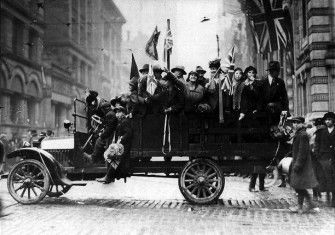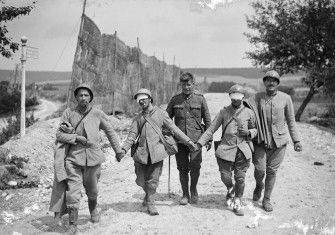When the Men Came Marching Home from the Great War
Having survived the rigours of the First World War, soldiers faced the return to civilian life. For some, it presented an even greater challenge.

The Seventh Dragoon Guards made one of the last charges of the First World War at 10.30am on 11 November 1918, galloping forward and capturing the bridge at Lessines in the Picardy region of Belgium. Fighting officially ended at 11am on the same day, when the Armistice was signed. On hearing the news, the Fifth Dragoon Guards’ official war diary described the celebration as the regiment prepared for a ‘triumphal march into Germany’. While the official diary could easily be written in a celebratory tone, this was not necessarily representative of the feelings that other diaries captured. The war diary of the First West Yorkshire Regiment, for example, wrote that ‘the news was taken very quietly’. Back home, newspapers celebrated and reported that women and children were on the streets flying flags, but news of peace was often met by serving troops with quiet reflection and thanksgiving. As we look back now, over the century since the end of the war, it becomes apparent that reactions to the Armistice have changed to fit in with distinct attitudes towards the war and the years that followed it, which echoed the mood of the nation.







